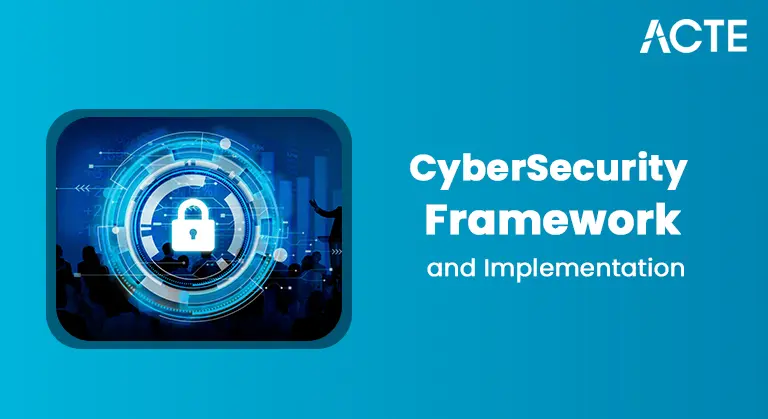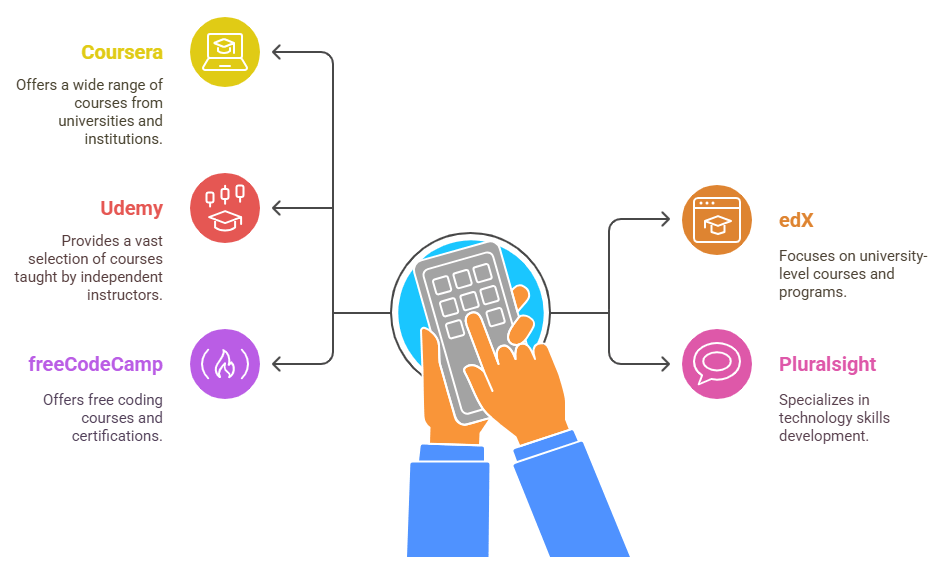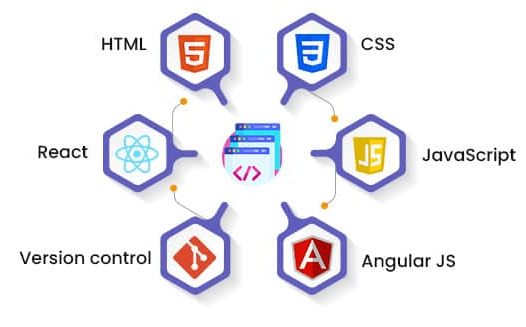
- Importance of Software Development Skills
- Platforms Offering Courses
- Full Stack Development Courses
- Front-End Specializations
- Back-End Specializations
- Mobile App Development Courses
- Data Structures and Algorithms
- DevOps and Deployment Courses
Importance of Software Development Skills
Software development stands at the heart of the modern digital economy, driving innovation and efficiency across various sectors. In today’s fast-paced technological environment, having strong software development skills is essential for creating reliable and efficient applications that meet user needs. These skills enable professionals to automate repetitive tasks, analyze complex data sets, and design intuitive, user-friendly products that enhance customer experiences. Mastery of coding languages such as Python, Java, JavaScript, and C++ allows developers to write clean, efficient code that forms the backbone of software applications. Beyond writing code, skills in debugging are crucial for identifying and fixing errors, ensuring that applications run smoothly and reliably. Understanding the software development lifecycle, from planning and design to testing and deployment, equips developers with the ability to manage projects effectively and deliver high-quality products on time, a crucial skill emphasized in Web Designing Training. As businesses increasingly rely on digital solutions, the demand for skilled software developers continues to rise across industries like finance, healthcare, entertainment, and e-commerce. Structured learning through formal courses or bootcamps not only provides foundational knowledge but also helps learners stay updated with the latest technologies and development methodologies. Acquiring software development skills opens doors to a wide range of career opportunities, offering competitive salaries and prospects for advancement. Moreover, these skills foster creativity and problem-solving abilities, leading to greater job satisfaction and the ability to contribute meaningfully to technological progress. In essence, software development skills are a valuable asset in today’s technology-driven world, empowering professionals to build innovative and scalable digital solutions.
Interested in Obtaining Your Web Developer Certificate? View The Web Developer Courses Offered By ACTE Right Now!
Platforms Offering Courses
There are numerous platforms offering high-quality courses in software development, catering to beginners as well as advanced learners. These platforms provide flexible learning options, enabling students to acquire skills at their own pace and convenience. One of the most popular platforms is Coursera, which partners with leading universities and companies to offer comprehensive courses and specializations in various programming languages, software engineering, and computer science fundamentals. Learners can access video lectures, assignments, and community forums for a well-rounded educational experience. edX is another reputable platform offering courses from top institutions like Harvard and MIT, including those on What is React. It provides a variety of software development topics, including web development, mobile app development, and data structures. The courses often include hands-on projects, helping students apply theoretical knowledge practically. For those seeking more coding-intensive training, Udemy offers a vast library of courses on specific technologies and tools. With affordable prices and frequent discounts, Udemy is accessible to a broad audience. Its courses cover everything from beginner-friendly programming languages to advanced frameworks and software architecture. Pluralsight targets IT professionals and developers by offering in-depth tutorials on software development, cloud computing, and cybersecurity.

Its skill assessments and learning paths guide users through progressive levels of mastery. freeCodeCamp is a free resource that provides a project-based curriculum, making it ideal for learners who want practical experience while studying. These platforms often include certificates upon completion, which can enhance a learner’s resume. By leveraging these educational resources, individuals can build a strong foundation in software development and stay updated with emerging technologies, thereby improving their employability and career growth prospects.
Full Stack Development Courses
- Comprehensive Curriculum: Full stack development courses cover both front-end and back-end technologies, including HTML, CSS, JavaScript, React, Node.js, Express.js, and databases like MongoDB or MySQL. This equips learners with the skills to build complete web applications from scratch.
- Project-Based Learning: These courses emphasize hands-on projects, allowing students to create real-world applications. Building portfolios through practical work enhances understanding and improves employability.
- Flexible Learning Formats: Many platforms offer self-paced, instructor-led, or hybrid courses, accommodating different learning styles and schedules, especially for topics like AngularJS Vs JQuery.
- Industry-Relevant Tools: Full stack courses introduce learners to modern development tools like Git for version control, Docker for containerization, and deployment practices, ensuring they are job-ready upon completion.
- Support and Community: Students often gain access to forums, mentorship, and peer groups, fostering collaboration and problem-solving. This support system is crucial for overcoming challenges and staying motivated.
- Certification and Career Services: Many programs provide certificates that validate skills and knowledge. Some also offer career support, including resume building, interview preparation, and job placement assistance.
- Updated Content: Given the fast-evolving nature of web technologies, reputable full stack courses regularly update their material to reflect the latest frameworks, libraries, and best practices, keeping learners current with industry trends.
- HTML & CSS Mastery: Front-end developers must have a strong grasp of HTML and CSS, the foundational technologies used to structure and style web pages. Specializing in these areas helps create visually appealing and accessible websites.
- JavaScript Programming: JavaScript is essential for adding interactivity and dynamic content to web pages. Specializing in JavaScript allows developers to build responsive interfaces and handle user events effectively, making it a key component of Web Designing Training.
- Frameworks and Libraries: Popular frameworks and libraries like React, Angular, and Vue.js have become vital tools in front-end development. Specializing in one or more of these enables developers to build complex, maintainable, and high-performance applications.
- Responsive Design: With the increasing use of mobile devices, front-end developers specialize in responsive design techniques to ensure websites function seamlessly across different screen sizes and devices.
- User Experience (UX) and User Interface (UI) Design: Some front-end specialists focus on UX/UI design to create intuitive, user-friendly interfaces that enhance user satisfaction and engagement.
- Performance Optimization: Specializing in optimizing front-end performance involves techniques like code splitting, lazy loading, and minimizing resource usage to improve page load times and overall user experience.
- Testing and Debugging: Front-end developers may specialize in testing frameworks such as Jest or Cypress to write automated tests, ensuring that applications work correctly across browsers and devices while maintaining high code quality.
- Comprehensive Platform Coverage: Mobile app development courses often cover both major platforms Android and iOS. Learners get hands-on experience with tools like Android Studio for Android and Xcode for iOS development, ensuring they can build apps for a wide audience.
- Programming Languages: These courses teach essential programming languages such as Java and Kotlin for Android, and Swift or Objective-C for iOS. Understanding these languages is crucial for writing efficient and native mobile applications.
- Cross-Platform Development: Many courses also include training on cross-platform frameworks like React Native, Flutter, or Xamarin, allowing developers to create apps that work on both Android and iOS from a single codebase, saving time and resources.
- User Interface Design: Mobile app courses emphasize designing intuitive and responsive user interfaces that provide smooth user experiences across various screen sizes and device types, an essential skill for mobile developers and often a topic of comparison in TypeScript Vs JavaScript.
- Backend Integration: Courses teach how to connect mobile apps to backend services using APIs, cloud databases, and authentication services, enabling apps to handle data storage, user management, and real-time updates.
- Testing and Deployment: Students learn testing methodologies specific to mobile apps, including unit testing and UI testing, along with deploying apps to Google Play Store and Apple App Store, covering the complete app lifecycle.
- Project-Based Learning and Certification: These courses often include real-world projects that help build a professional portfolio. Upon completion, learners usually receive certifications that validate their skills and enhance job prospects.
Are You Interested in Learning More About Web Developer? Sign Up For Our Web Developer Courses Today!
Front-End Specializations

Back-End Specializations
Back-end development is a critical specialization within software development that focuses on the server side of applications, where the core logic, databases, and server configuration reside. Back-end developers are responsible for building and maintaining the systems that process user requests, manage data, and ensure seamless communication between the front-end interface and the database. This specialization requires a strong understanding of server, database, and application architecture. Key skills in back-end development include proficiency in programming languages such as Java, Python, Ruby, PHP, and Node.js. These languages enable developers to write efficient server-side code that powers web applications, mobile apps, and APIs, which can be integrated with automation tools like What is UIPath. Additionally, knowledge of database management systems like MySQL, PostgreSQL, MongoDB, and Oracle is essential for designing, querying, and maintaining data storage. Back-end developers also work extensively with server frameworks and tools such as Express.js for Node.js, Django for Python, and Spring for Java. These frameworks simplify complex tasks like routing, authentication, and data validation, enabling faster and more secure application development. Security is another vital aspect of back-end specialization. Developers must implement authentication, authorization, encryption, and other security measures to protect user data and prevent unauthorized access. Moreover, familiarity with cloud services like Amazon Web Services (AWS), Microsoft Azure, or Google Cloud is increasingly important. These platforms provide scalable infrastructure, storage, and computing power that support modern back-end applications. By specializing in back-end development, professionals can play a key role in building robust, scalable, and secure applications. This specialization offers numerous career opportunities in industries ranging from e-commerce to finance, healthcare, and beyond, where reliable data processing and server management are crucial.
To Earn Your Web Developer Certification, Gain Insights From Leading Data Science Experts And Advance Your Career With ACTE’s Web Developer Courses Today!
Mobile App Development Courses
Data Structures and Algorithms
Data structures and algorithms form the foundation of efficient software development and computer science. They are essential concepts that help developers organize data and solve problems in an optimized manner. Data structures refer to the way data is stored, managed, and accessed in a program, while algorithms are step-by-step procedures or formulas for solving specific problems. Common data structures include arrays, linked lists, stacks, queues, trees, graphs, and hash tables. Each structure has unique characteristics suited for particular use cases. For example, arrays allow fast access to elements using indexes, whereas linked lists provide flexibility in memory usage by dynamically allocating space. Trees and graphs are useful for representing hierarchical or networked data, while hash tables enable quick data retrieval through key-value pairs, concepts that are important to understand when exploring topics like What is Angular. Algorithms operate on these data structures to perform tasks such as searching, sorting, and traversing data efficiently. Popular algorithms include binary search, quicksort, mergesort, and breadth-first or depth-first search. The choice of algorithm can greatly impact the performance of an application, especially when working with large datasets. Understanding data structures and algorithms enables developers to write code that is not only correct but also optimized for speed and memory usage. It improves problem-solving skills, allowing programmers to design solutions that scale well with increasing data size and complexity. In technical interviews, proficiency in data structures and algorithms is often tested to evaluate a candidate’s analytical thinking and coding abilities. Beyond interviews, these concepts are vital in real-world applications such as database indexing, network routing, and artificial intelligence. Mastery of data structures and algorithms is therefore a critical skill set for any software developer aiming to build efficient and robust software systems.
DevOps and Deployment Courses
DevOps and deployment courses have become increasingly important in the world of software development due to the growing demand for faster, more reliable, and automated delivery of applications. DevOps is a set of practices that combines software development (Dev) and IT operations (Ops) to shorten the development lifecycle while delivering high-quality software continuously. These courses teach the skills necessary to implement and manage efficient workflows that integrate development, testing, deployment, and monitoring. DevOps courses typically cover essential tools such as Docker for containerization, Kubernetes for orchestration, Jenkins for continuous integration and continuous deployment (CI/CD), and Git for version control. Understanding these tools helps professionals automate the process of building, testing, and deploying software, reducing manual errors and increasing productivity. Courses often include practical projects that simulate real-world scenarios, allowing learners to gain hands-on experience with automated pipelines and cloud environments, which are also integral parts of Web Designing Training. Deployment courses focus on strategies for releasing applications safely and efficiently, including blue-green deployment, canary releases, and rollback procedures. These methods ensure minimal downtime and risk during updates. Additionally, courses may cover cloud platforms like AWS, Azure, and Google Cloud, teaching how to deploy and scale applications in the cloud. Mastering DevOps and deployment skills is highly valued by employers because it improves collaboration between development and operations teams, accelerates time to market, and enhances the reliability of software products. For software developers, IT engineers, and system administrators, investing in these courses opens up new career opportunities and enables them to contribute significantly to modern software delivery practices in today’s competitive technology landscape.





